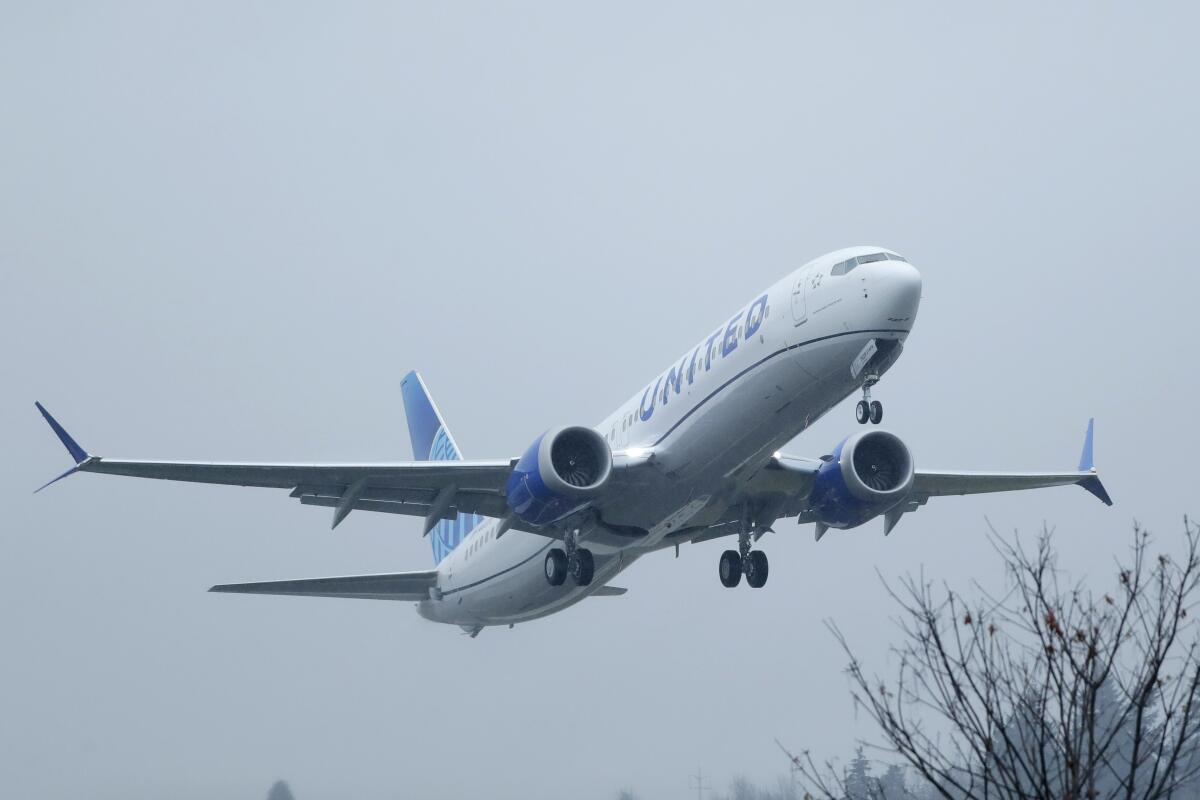Boeing is fined $6.6 million; it failed to comply on safety agreement, FAA says

Boeing Co. has agreed to pay $6.6 million in penalties after U.S. regulators said the plane maker failed to comply with a 2015 agreement to improve its safety processes.
The Federal Aviation Administration announced the penalties Thursday. The company agreed to pay $5.4 million to settle earlier cases brought against it and an additional $1.21 million for two more recent cases, the agency said.
“Boeing failed to meet all of its obligations under the settlement agreement, and the FAA is holding Boeing accountable by imposing additional penalties,” FAA Administrator Steve Dickson said in a news release. “I have reiterated to Boeing’s leadership time and again that the company must prioritize safety and regulatory compliance, and that the FAA will always put safety first in all its decisions.”
Boeing slid 5.6% to $216.45 a share Thursday, the biggest decliner on the Dow Jones industrial average, amid a broad rout in U.S. stocks.
The agreement comes months after Boeing’s bestselling plane, the 737 Max, was allowed to return to the skies after being grounded for 20 months, during which lawmakers and others denounced the company’s safety culture. The grounding, which followed two deadly crashes, led to billions of dollars in lost sales and other costs. During that time, the FAA withheld what had been routine authority for the company to perform such things as approvals of planes coming off the assembly line.
Boeing last month separately agreed to pay $2.5 billion to settle a criminal case against it by the U.S. Justice Department. The company was accused of defrauding the government by concealing information about the 737 Max. Some on Wall Street and in Congress said the penalty was light because most of it was money the company had already agreed to pay to airlines and accident victims’ families.
Among the issues cited Thursday by the FAA was “undue pressure” placed on Boeing employees who were deputized by the government to sign off on whether design changes met federal regulations. Under FAA rules, those employees are supposed to act independently.
Boeing previously paid $12 million in civil penalties as an initial condition of the 2015 agreement. At that time, the company settled 13 separate investigations underway by the FAA covering issues that arose during the certification of new planes as well as alleged sloppiness in the company’s production facilities.
As part of that agreement, Boeing agreed to improve its safety processes and prioritize complying with FAA regulations, the agency said. The company agreed to additional penalties if it failed to do so.
Boeing failed to meet some of its “improvement targets” and “some company managers did not sufficiently prioritize compliance with FAA regulations,” the FAA said in its news release.
One of the core allegations related to how Boeing operated what is known as its Organization Designation Authorization, in which hundreds of employees review designs and perform other functions in behalf of the government.
Such programs have been highly controversial since the two 737 Max crashes because crucial decisions were made by the designated employees to approve what was later determined to be a flawed design. A total of 346 people died in the crashes, which were triggered in part by a flight system that repeatedly tried to make the plane dive after a malfunction.
Congress passed a law in December beefing up how the FAA oversees Boeing’s designated employee program.
“We are strengthening our work processes and operations to ensure we hold ourselves accountable to the highest standards of safety and quality,” Boeing said in a statement.
The company added that it “believes that the announcement today fairly resolves previously announced civil penalty actions while accounting for ongoing safety, quality and compliance process improvements.”
More to Read
Inside the business of entertainment
The Wide Shot brings you news, analysis and insights on everything from streaming wars to production — and what it all means for the future.
You may occasionally receive promotional content from the Los Angeles Times.










